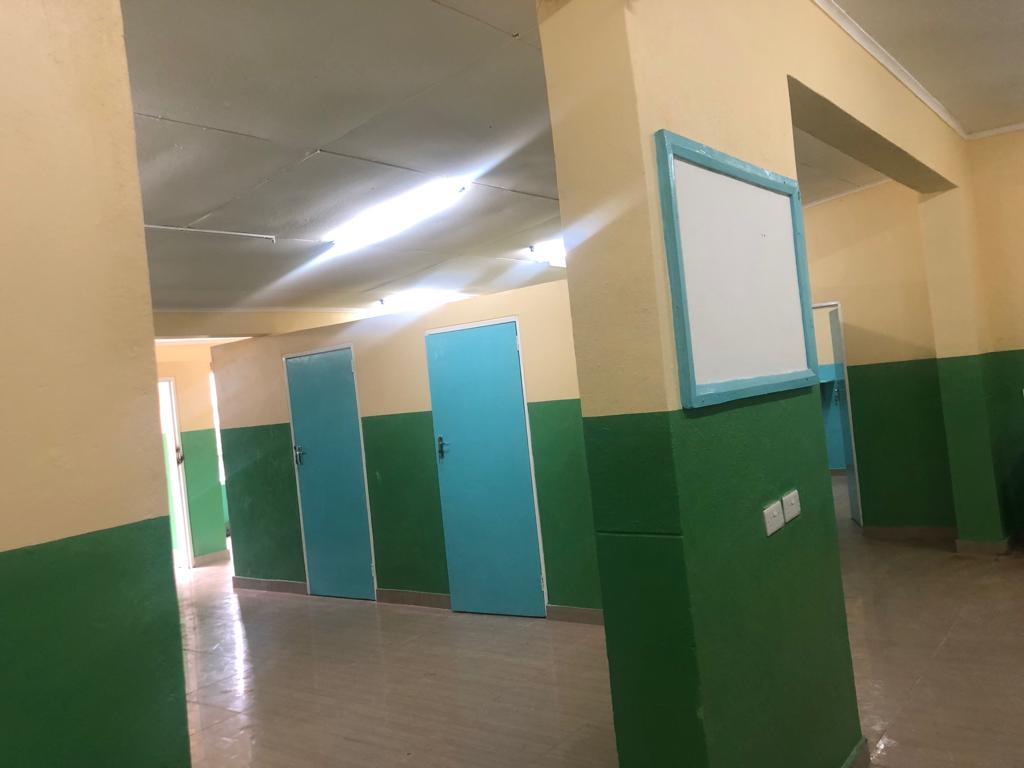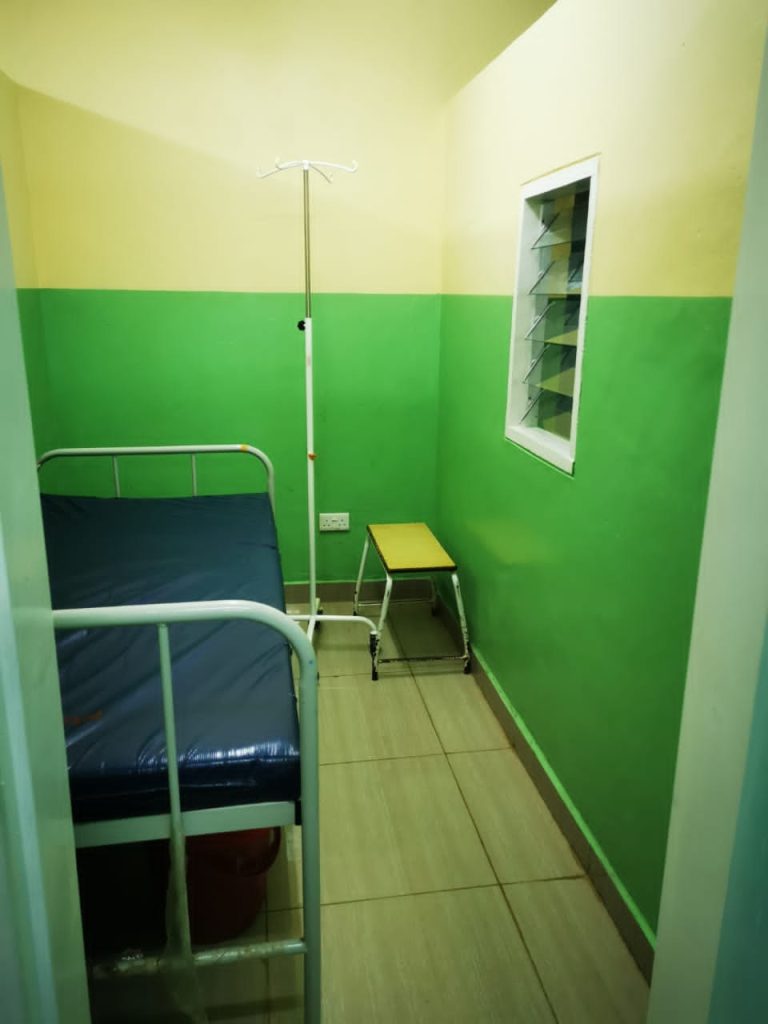
Stories from Malawi: When building walls is building trust- “We have reached a milestone for companionship”.
Although privacy and respect during maternity care is every woman’s right, overcrowding and a lack of privacy are part of childbirth for many women across the world. Therefore, a major improvement in one of the ALERT hospitals in Malawi is the building of separate rooms for delivery. Women are now able to give birth in their own room allowing both privacy and bringing a companion.
One of the four hospitals in Malawi where ALERT operates is going through many changes to improve care for mothers and newborns. Perhaps one of the most important ones is the renovation of the maternity ward.
“At first the ward was just one big room with some curtains and people were able to see each other when delivering, there was no privacy at all” says the director of the maternity ward.
Many women reported feeling uncomfortable with the lack of privacy. The department at the hospital recognised that this was a problem of huge concern and this issue was raised frequently in the feedback on care from mothers. The hospital team wrote a report on this as a quality improvement problem and presented the feedback women had raised. Their report was listened to and GIZ (The German Technical Cooperation) financed the renovation of the maternity ward making demarcated labour rooms, whereby the privacy for women can be maintained.

“Before the renovation it was a sorry state because when you were passing through the ward you were able to see the nudity of all women. It was traumatic for them” says the director of the maternity ward..
Together with the new rooms the ward has also updated their policy on companionship where the hospital now also welcomes male companions to accompany the woman during delivery.
“After ALERT came in last year with the first training we had, they enlightened us because we took things for granted when it comes to the importance of the companion. After the training, we sat down and said no, this is so important. In the past we did not see people as a companion, but a guardian whom we just gave tasks like preparing food”.
After the training the team decided to try a different approach and allow companions. When reviewing the implementation they have seen tremendous improvements.
Cultural aspects of men being birth companions
In some cultures, bringing your husband as the companion throughout the whole delivery is the norm and most common thing to do, but this differs all around the world.
“We have male companions as well although our culture restricts this at some point. Only those that are a bit more educated understand that a man can also come to be a companion. We have had few men for the whole process from a first stage of labour up to delivery but most of them are just with the woman when they are in early stages of labour. When they are in advanced labour they opt to move out and come back when she has delivered” says the director of the maternity ward.
Some men explain that they are uncomfortable to witness the woman and the way she is behaving, for example if she is crying during contractions. Also women say that they are not comfortable with their partner seeing the vaginal births and they especially fear if their anatomy has changed or been distorted because of the delivery. The hospital has started with health education at the antenatal ward where they inform families that they have closed spaces for delivery where men can accompany as companions.
“We have seen a change even when they are coming for admission, men are also part of it. I know we cannot reach 100% in a day, but we have reached a milestone.”

Naturally the change in policy does not automatically lead to direct change in behaviour but this is a step by step process where the key is that the women have the possibility to choose. Soha El-Halabi is a doctoral student at Karolinska Institutet within ALERT and her research is focussing on labour companionship. She emphasises the aspect of choice and accessibility around companionship explaining that the choice may not be restricted to for example choosing between a mother or aunt as a companion but having the ability to choose whoever the woman wants. Similarly, companions cannot only be an option for those who can pay for a private room but a right for everyone.
“When a patient comes in with their husband and maybe with the mother, we ask her to choose who she wants to bring between the two. I witnessed a case where the woman chose the husband, but her mother said she did not want to go out. We told her to respect them, and that the daughter chose her husband so therefore he is the one who will stay” says the director of the maternity ward.
A team: healthcare provider, mother, and companion
Staff report experiences of improved communication between healthcare providers and clients. When a midwife is working together with the client and her companion, the client is more comfortable because there is someone there who she knows. The ward has seen immensely reduced cases of staff reporting women as “uncooperative patients”. When a healthcare provider can work together with a woman who feels comfortable and who has her companion that can help explaining things, the birth experience becomes better for everyone.
“The feedback has improved tremendously on satisfaction. People are satisfied with our service and just today I have received a voice note from one of the clients saying she is very grateful of how we helped her with her guardian and her privacy”.
Author:
Miriam Mosesson,
Communications Officer
-
Thats beautiful. This lack of privacy is traumatising for these mothers as well as us passing through the wards. I have seen one lady giving birth at some hospital while i passed by and till todate i still remember it vividly and it scares me.

1 comments